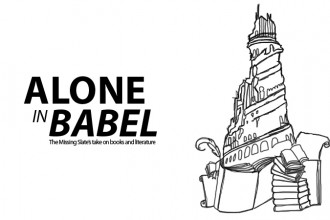In the early 1970s and with the war still raging, Hollywood began to explore serious questions about the conflict. Elia Kazan’s 1972 work The Visitors confronts the issue of war crimes committed by American soldiers, and with a darkly violent outcome the movie builds on the groundwork laid by Motorpsycho in examining the trauma felt by American soldiers trying to readjust back into civilian life. The first Vietnam film released after the war’s end followed suit: Heroes (1977) told the story of a veteran with post-traumatic amnesia attempting to find his comrades back home.  As the story progresses it transpires that two of his old buddies are in rough shape mentally and physically, while the third actually died on the battlefield in the incident which caused the protagonist’s memory loss.
As the story progresses it transpires that two of his old buddies are in rough shape mentally and physically, while the third actually died on the battlefield in the incident which caused the protagonist’s memory loss.
There would be a short sharp flurry of films focused on the war in the immediate aftermath of its 1975 conclusion including two 1978 pictures by Magnum Force director Ted Post; Good Guys Wear Black and Go Tell the Spartans. However, it was two other movies which would signify the end of this early part of the Vietnam War movement and prove the benchmark for much of what was to follow over the next three decades.
The Deer Hunter (1978) is the blueprint for the Vietnam War movie of popular culture that has become embedded in the psyche of the Western moviegoer for the last four decades. With a much sharper edge than the films which addressed the conflict before it, Michael Cimino’s picture addressed just about every horrifying facet of the Vietnam War experience. The loss of basic humanity, the horror experienced during the war for which the American soldier was totally unprepared, the subsequent trauma upon returning home typified by heroin abuse and suicide. Moreover these themes were explored in such a controversially blunt way that it made American audiences far more uncomfortable than any previous cinematic attempt to address the conflict. In rewarding the movie with Best Picture at the 1979 Academy Awards, Hollywood legitimised the Vietnam War Movie as high art, and this cementing of status was to be solidified very soon after by another masterpiece.
Francis Ford Coppola’s Apocalypse Now is for many moviegoers the Vietnam War Film. Like The Deer Hunter it offers a stark examination of various hellish themes associated with the war, but crucially the story as told on screen goes much further than that. Roger Ebert described Apocalypse Now as a film which “achieves greatness not by analysing our ‘experience in Vietnam’, but by re-creating, in characters and images, something of that experienceâ€. Simply put, Apocalypse Now gave the moviegoer a sense of what the war in Vietnam was actually like. The chaos encountered at every turn by Martin Sheen’s Captain Willard as he attempts to complete his mission together with the total devastation wrought all around him exemplified the famous expression “war is hellâ€, here stated famously as simply “the horror, the horrorâ€. On top of that the movie raised significant philosophical questions not just about the Vietnam conflict but about war in general. Marlon Brando’s Colonel Kurtz gives the audience layered queries and accusations about the human psyche and how it morphs when confronted by war, and together with the stunning cinematography and finesse of storytelling this helped make Apocalypse Now one of the most revered movies of all time.
Both The Deer Hunter and Apocalypse Now served to legitimise the Vietnam War Movie in much the same way as 2001: A Space Odyssey gave science fiction a high art voice. Following these two master works Hollywood would produce a plethora of standout Vietnam War Films, and the path that the movement would take is an intriguing one wrought with some of the most gut-wrenching cinema America has ever produced.
In the second part of this series we will explore how American cinema addressed the war in Vietnam itself, and examine how much of the way the United States views the conflict has been influenced by Hollywood depictions.
Michael Dodd is a film critic for the magazine.




